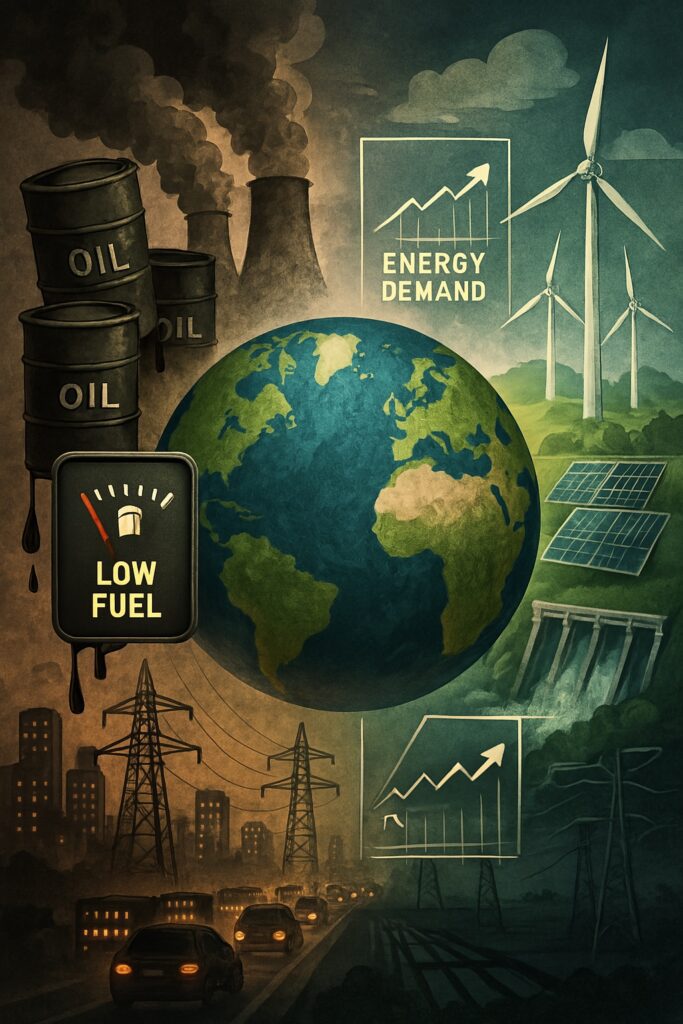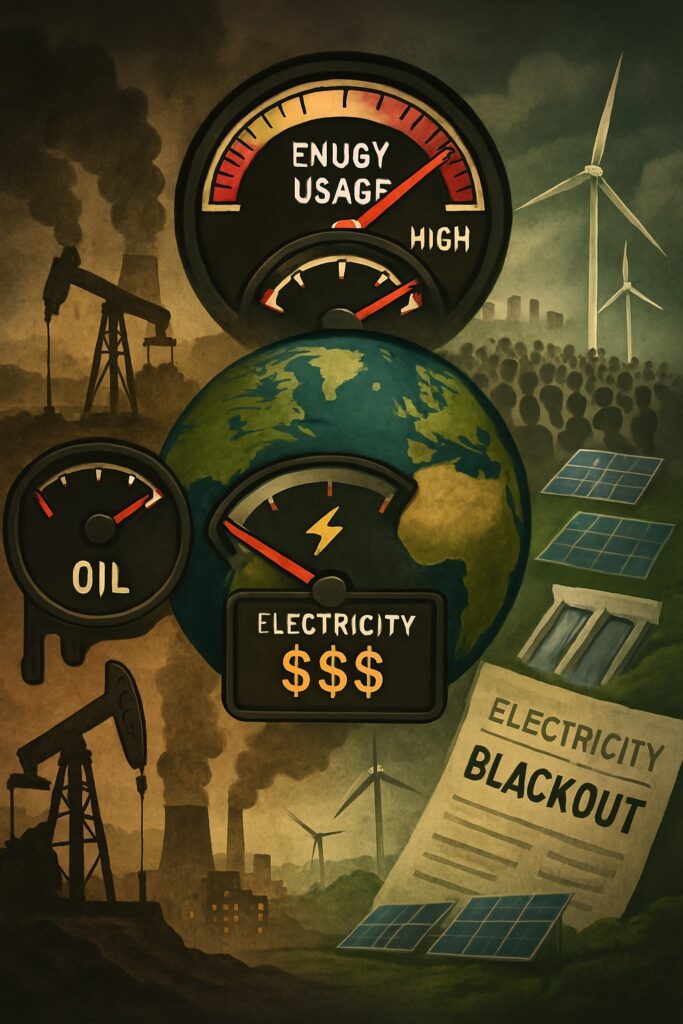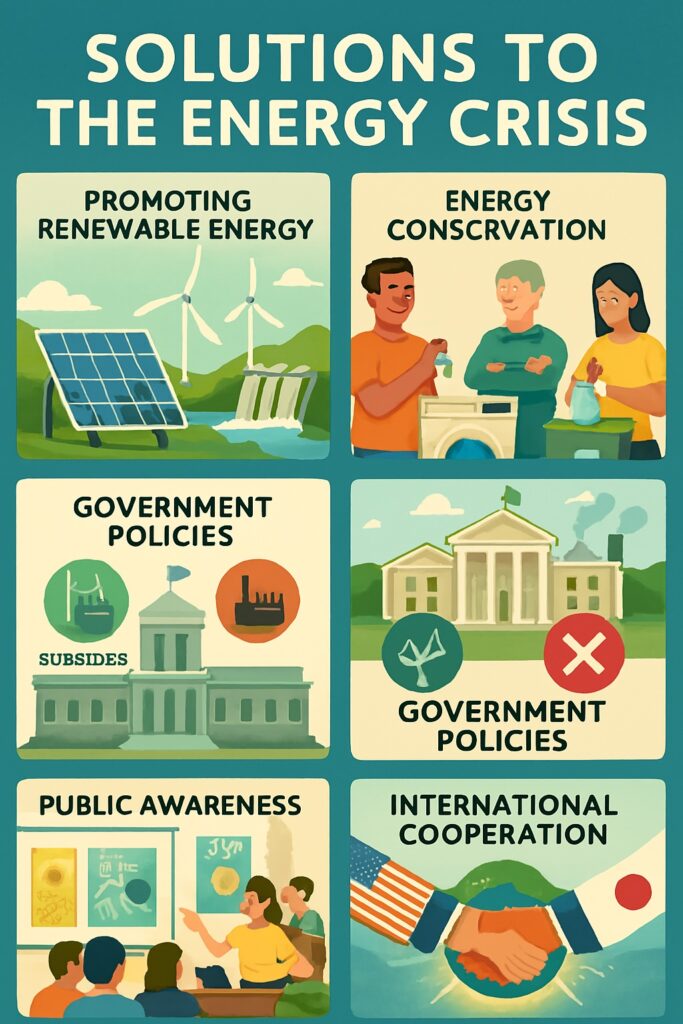The energy crisis refers to the increasing shortage of energy resources across the world. As our population grows and technology advances, our need for energy also rises. However, many of the energy sources we rely on—like coal, oil, and natural gas—are non-renewable and are being used up at a fast rate. This leads to high energy costs, power shortages, and environmental damage.

In recent years, the world has been facing an escalating energy crisis, characterized by rising energy demands, depleting fossil fuel reserves, and concerns over environmental sustainability. It poses significant challenges for governments, businesses, and individuals worldwide. However, amidst these challenges, there are also opportunities to foster innovation, develop sustainable alternatives, and reshape our energy landscape.
Table of Contents
Causes of Energy Crisis
- Growing Energy Demands: The global population continues to expand, and with it, the demand for energy rises. Rapid urbanization, industrialization, and technological advancements further exacerbate energy needs, straining existing resources.
- Depletion of Fossil Fuels: Fossil fuels, including coal, oil, and natural gas, have long served as the primary energy sources. However, their reserves are finite and dwindling, making their extraction more challenging and costly.
- Environmental Impact: The extraction and burning of fossil fuels result in harmful greenhouse gas emissions, contributing to climate change and environmental degradation. This impact necessitates a transition to cleaner, renewable energy alternatives.
Consequences of the Energy Crisis
- Volatile Energy Prices: The scarcity of conventional energy sources leads to fluctuating energy prices, affecting industries, businesses, and consumers. These price variations can strain economies and hinder long-term planning and investment.
- Geopolitical Tensions: As countries compete for limited energy resources, geopolitical tensions, and conflicts can arise. Control over energy reserves and transportation routes becomes a significant factor in global politics, potentially destabilizing regions.
- Environmental Degradation: Reliance on fossil fuels results in air pollution, water contamination, and ecosystem disruption. The consequences include respiratory illnesses, loss of biodiversity, and ecological imbalances, impacting human health and the planet’s overall well-being.

Solutions to Mitigate the Energy Crisis
- Renewable Energy Transition: Investing in renewable energy sources such as solar, wind, hydro, and geothermal power can offer sustainable alternatives to fossil fuels. Governments and businesses should prioritize research, development, and adoption of these clean energy technologies.
- Energy Efficiency Measures: Enhancing energy efficiency in all sectors, including residential, commercial, and industrial, can significantly reduce energy demand. Energy-efficient appliances, improved insulation, and smart grid systems are just a few examples of how efficiency can be enhanced.
- Grid Modernization and Storage: Modernizing power grids to accommodate renewable energy sources and integrating energy storage systems can address the intermittent nature of renewables. Advancements in battery technology and the development of smart grid infrastructure enable a more stable and reliable energy supply.
- Diversification of Energy Sources: Reducing dependence on a single energy source and diversifying the energy mix can enhance energy security. This includes promoting a combination of renewable energy, nuclear power, and cleaner fossil fuel technologies like natural gas.
- Public Awareness and Policy Support: Raising awareness about the energy crisis and its implications is crucial for driving change. Governments must implement supportive policies, such as incentives for renewable energy investments, carbon pricing, and regulations that encourage sustainable practices.

Conclusion
The energy crisis demands immediate action and collaboration on a global scale. Transitioning to renewable energy sources, improving energy efficiency, modernizing power grids, diversifying energy sources, and implementing supportive policies are essential steps to mitigate the crisis. By embracing innovation and sustainable practices, we can pave the way for a cleaner, more secure, and economically viable energy future. Together, we can overcome the energy crisis and build a sustainable world for future generations.
Read: Geography Notes